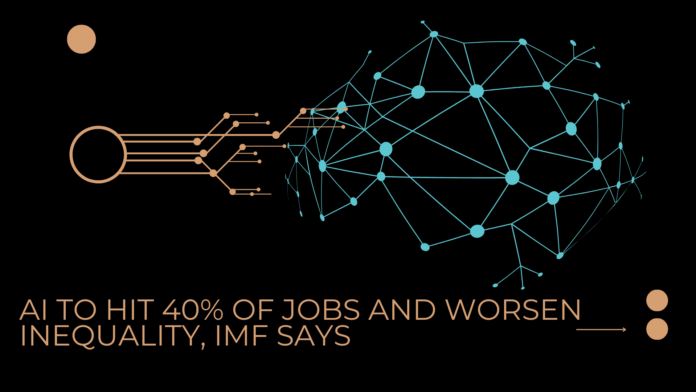A recent analysis by the International Monetary Fund (IMF) projects that artificial intelligence (AI) is poised to impact nearly 40% of all jobs. According to IMF’s managing director, Kristalina Georgieva, in most scenarios, AI is likely to exacerbate overall inequality. Ms. Georgieva emphasizes the need for policymakers to address this concerning trend to prevent the technology from further exacerbating social tensions.
The IMF suggests that AI is expected to have a more substantial impact, approximately 60%, on jobs in advanced economies. In half of these cases, workers stand to benefit from AI integration, leading to enhanced productivity. However, in other instances, AI may take over tasks currently performed by humans, potentially reducing demand for labor and impacting wages, even resulting in job elimination.
Contrastingly, the IMF projects that low-income countries will experience AI’s effects on only 26% of jobs. This aligns with a 2023 report from Goldman Sachs, estimating that AI could replace the equivalent of 300 million full-time jobs. The report also suggests the possibility of new job creation alongside increased productivity.
Ms. Georgieva warns that many countries lack the necessary infrastructure and skilled workforce to harness AI’s benefits, raising the risk of technology exacerbating inequality among nations. The IMF proposes the establishment of comprehensive social safety nets and retraining programs for vulnerable workers to make the AI transition more inclusive, protecting livelihoods and mitigating inequality.
The analysis also highlights potential wage disparities, with higher-income and younger workers likely experiencing disproportionate increases in their wages after adopting AI, while lower-income and older workers may face challenges keeping pace. Ms. Georgieva emphasizes the importance of countries implementing measures to ensure a more equitable transition to AI.
This IMF analysis coincides with discussions on AI at the World Economic Forum in Davos, Switzerland, where global business and political leaders are gathering. AI’s growing prominence has led to increased regulatory efforts worldwide, including the European Union’s provisional deal on comprehensive AI regulations, China’s pioneering national regulations, and initiatives such as the AI Safety Summit hosted by the UK. The global community is increasingly recognizing the need to navigate the impact of AI responsibly and inclusively.


